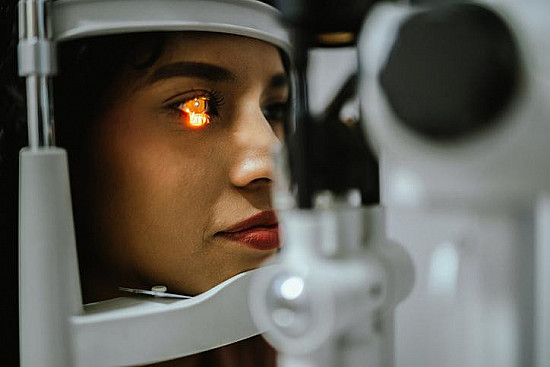An often-silent liver condition that threatens the heart
Obesity and its related complications leave people vulnerable to the condition, known as metabolic dysfunction–associated steatotic liver disease.
- Reviewed by Christopher P. Cannon, MD, Editor in Chief, Harvard Heart Letter; Editorial Advisory Board Member, Harvard Health Publishing

An alarming number of Americans have a potentially serious condition marked by a buildup of fat inside the liver. Previously called fatty liver disease, it's now known as metabolic dysfunction–associated steatotic liver disease, or MASLD (pronounced "MAZ-uld").
The root of the problem is usually excess weight — especially the accumulation of belly fat known as visceral or abdominal obesity. Weight gain can trigger a host of metabolic problems that cause blood sugar, blood pressure, and cholesterol levels to rise. All of these factors are closely linked to higher risks for diabetes and cardiovascular disease.
"In people who have MASLD, cardiovascular disease is one of the most common causes of death," says Harvard Medical School professor Dr. Michael Curry, section chief of hepatology at Beth Isreal Deaconess Medical Center. Experts believe that inflammatory compounds and other substances pumped out by a fat-afflicted liver may damage the insides of arteries, making plaque buildup more likely and setting the stage for a heart attack or stroke.
How is MASLD diagnosed?
In its early stages, MASLD has no symptoms. It's often discovered by chance during an imaging test, such as abdominal ultrasound, MRI, or CT. Sometimes, blood tests reveal slightly elevated liver enzymes, but many people with MASLD have normal liver function. Doctors may also use a tool known as the Fibrosis-4 Index, says Dr. Curry. It uses a person's age plus three common lab values (platelet count and two liver enzyme levels) to estimate a person's risk of serious liver disease. People may also undergo a noninvasive test called transient elastography (also known as FibroScan) that measures liver stiffness.
"Worldwide, an estimated 30% of people have MASLD," says Dr. Curry. In the United States, it's more prevalent in southern states (where obesity rates are higher) than in the northern states, he adds. About one in five people with MASLD have a more severe form of the disease, called metabolic dysfunction–associated steatohepatitis (MASH), in which the liver cells are inflamed and injured. This process may create scar tissue, which can eventually replace normal liver cells and lead to cirrhosis. Cirrhosis caused by MASH may progress to liver cancer and is among the leading reasons for liver transplantation.
Weight loss and other treatments
Weight loss can improve markers of metabolic dysfunction, and losing 10% of your body weight can reverse MASLD, says Dr. Curry. The diet celebrated for heart health, the Mediterranean diet, is a good choice. Other strategies to curb calorie intake, like intermittent fasting, help some people. Choose whatever weight-loss diet works best for you, but don't drink alcohol, he advises.
"We know there's no safe amount of alcohol for anyone. But people with obesity and diabetes who are already at high risk for developing liver disease should absolutely avoid all alcohol," says Dr. Curry.
What about medications?
Some clinicians are reluctant to prescribe cholesterol-lowering statins to people who may have liver disease, says Dr. Curry. In rare cases statins trigger abnormal liver function, and even more rarely, a drug-induced autoimmune liver disease, which causes liver enzymes to rise. But the heart-protecting benefits of statins far outweigh that small risk. "We see many patients in our clinic who've been taken off statins because they have mildly abnormal liver function tests. But those elevated levels are almost always driven by MASLD, not by the statin," says Dr. Curry.
Some research suggests that low-dose aspirin — another drug often recommended for heart patients — may help prevent the progression of MASLD to MASH. But unless your physician recommends low-dose aspirin, don't start taking it on your own.
Obesity drugs such as semaglutide (Wegovy) and tirzepatide (Zepbound) appear promising for reversing MASLD. In 2024, the FDA approved resmetirom (Rezdiffra), the first-ever medication to treat MASH. The drug helps prevent fat buildup in the liver and may reverse liver scarring.
But catching and treating liver disease before dangerous scarring occurs is far better, says Dr. Curry, noting that two-thirds of people with diabetes and elevated liver enzymes have signs of fibrosis. "In our clinic, we're constantly seeing people with advanced liver disease who didn't realize they were at risk. By the time that happens, no amount of medication can reverse the problem."
Image: © Kateryna Kon/Science Photo Library/Getty Images
About the Author

Julie Corliss, Executive Editor, Harvard Heart Letter
About the Reviewer

Christopher P. Cannon, MD, Editor in Chief, Harvard Heart Letter; Editorial Advisory Board Member, Harvard Health Publishing
Disclaimer:
As a service to our readers, Harvard Health Publishing provides access to our library of archived content. Please note the date of last review or update on all articles.
No content on this site, regardless of date, should ever be used as a substitute for direct medical advice from your doctor or other qualified clinician.
















